

A forum to share ideas and experiences on technology, teaching, and learning
![]() What is Crosstalk?
What is Crosstalk?
![]() To become more
involved with Crosstalk
To become more
involved with Crosstalk
![]() Archives from
previous academic years
Archives from
previous academic years
Wednesday, May 28, 2008, 2:30 pm to 3:30pm, TEAL Classroom 26-152
|
|
Finding Grist and Inspiration for the Next Pedagogical InnovationToru Iiyoshi, Senior Scholar and Director of the Knowledge Media Laboratory at the Carnegie Foundation for the Advancement of Teaching. |
Abstract
Rethinking and improving your teaching and your studentís learning can be an intellectually stimulating and rewarding journey, but where and how can you find useful pedagogical ideas and resources for this endeavor? Furthermore, once you have succeeded in your transformational effort, how can you quickly share that experience and process with your departmental and institutional colleagues and beyond so that they can learn from and build on your scholarly work on innovative teaching?
This session presents the decade of work by the Carnegie Foundationís Knowledge Media Lab (KML) that helps promote collective educational knowledge building and sharing. Some of the implications as well as the possibilities of how the tools and resources developed through this work could empower MIT faculty members as an engaged community of practice will be explored and discussed.
About the Presenter
Toru Iiyoshi is Senior Scholar and Director of the Knowledge Media Laboratory at the Carnegie Foundation for the Advancement of Teaching.
Since joining the Foundation in 1999, Iiyoshi has lead research and development efforts that take advantage of emerging technologies to enable educational institutions, programs, faculty, and teachers to transform the knowledge implicit in effective practice and transformation efforts into ideas, theories, and resources that can be shared widely to advance teaching and student learning. His current work areas include open education, technology-enhanced scholarship of teaching and learning, and collective educational knowledge building and sharing.
Iiyoshi is the co-editor of the upcoming Carnegie Foundation book, Opening Up Education: Collective Advancement of Education through Open Technology, Open Content, and Open Knowledge (MIT Press, August 2008).
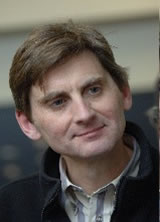 Prof. Jesus del Alamo |
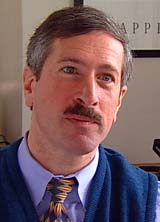 Prof. Steven Lerman |
 Jud Harward |
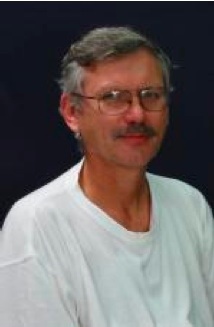 Prof. Mark Schulz |
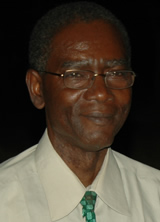 Prof. Kehinde Kunle |
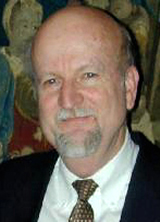 Prof. John Belcher
|
Abstract
iLabs is a software architecture for delivering remote labs to students
via the Internet. iLabs enables not only expensive or
scarce laboratory resources to be easily accessed by students,
but opens opportunities for students to engage with experiments in
multiple contexts. iLabs are spreading around the world. They have been
enabling students to access and run laboratory experiments for 10
years. This semester at MIT 6.002 students ("Circuits and
Electronics") now routinely use ilabs for all homework accessing three
different ilabs.
This seminar will present the state of the iLabs work in remote
laboratories, introducing a way to control real-time as well as batch
oriented experiments, and demonstrating implementations of remote lab
experiments from Nigeria, Australia, and the US. This month the iLabs
team is hosting developers from six countries who are building iLab
xperiments. Come to learn the state of the art in bringing
experimental devices to students, explore ways that your experiments
might be made more widely accessible to students at MIT and elsewhere,
and celebrate the extraordinary success of the iLabs project in its
first decade of development and deployment of 'minds on' experiments.
Please join us at the end of the session for a special presentation by Dean Daniel Hastings to the iLabs team commemorating the 10th year of iLabs - "If you can't come to the experiment, the experiment can come to you."
Who: Professor Jesus del Alamo, (MIT)
Professo Steve Lerman, (MIT),
Jud Harward (MIT),
Prof. Kunle Kehinde, (OAU - Nigeria),
Prof. Mark Schulz (UQ - Australia)
What: iLabs - the view from 10 years on
When: Thursday, March 6th, 2008
Where: 26-152 (the TEAL I Room)
Time: 2:30 pm - 3:30 pm
For more information please got to either the iLabs Wiki or the iLabs iCampus website.
May 22, 2007, 10:30 am - noon, 26-152 (TEAL1 Classroom)
 Prof. Don Lessard |
Dr. Amanda Graham |
 Jennifer Craig |
 Natalie Kuldell |
Using Collaboration Tools in TeachingPanelists:Prof. Donald Lessard, Epoch Foundation Professor of International Management, Sloan School Dr. Amanda Graham, Laboratory for Energy and the Environment Jennifer Craig, Program in Writing and Humanistic Studies / Dept. of Aeronautics and Astronautics Dr. Natalie H. Kuldell, Biological Engineering |
Abstract
The proliferation of network-based collaboration and social networking
tools brings new challenges and opportunities for teaching. Wikis
provide flexible, easily edited, web-based platforms for collaboration
that can be used for any number of pedagogical tasks, from class
projects to lab how-tos to course design. Blogs can provide a more
individualized platform for student reflection. The collaborative
environment of the classroom itself can be technologically altered
through the use of classroom response systems and related tools.
What structure or set of practices makes for an effective teaching
wiki? How can a professor efficiently and effectively negotiate a
classes-worth of student blog posts? In this seminar we will hear from
instructors who are currently using collaboration technologies in their
classes. After some short presentations, we'll have further discussion
of collaboration tools in general. This seminar will serve as the
introduction to OEIT's new Collaboration Tools Program Area, and we
very much want to solicit your ideas to help guide us as we move
forward.
Thursday, April 19, 2007, 3:30 pm to 4:30pm, 5-217
|
|
|
|
Using Visualization to teach concepts in Science & EngineeringProf. John Belcher Professor & Class of 1960 Faculty Fellow, Physics Prof. Fredo Durand Jamieson Career Dev Associate Professor, EECS Prof. Graham Walker Professor of Biology |
Abstract
Visualizations are fast becoming an essential element in teaching
science and engineering. Computational tools for creating compelling,
attractive, and high fidelity representations of scientific and
engineering phenomena are more widely available
and becoming easier to use. With all the aesthetic appeal that the
current generation of visualizations bring, the question remains, are
they more than just 'eye candy'- that is, what evidence is there that
they improve learning? Do they deepen
intuition about physical processes? What principles make for good
visualizations? How do you work them into the course and plan
for their use in assignments? How do you measure their impact on student
learning?
About the Presenters
Professor
John Belcher is Professor & Class of 1960 and a
MacVicar Faculty Fellow
at MIT. He has been primarily responsible for the development of
Technology Enabled Active Learning TEAL.
and has developed an award winning Java3D visualization engine TEALsim
used for both the physics visualizations and recently
biology.
Professor Fredo Durand is an Associate Professor an associate professor in the Electrical Engineering and Computer Science Department at MIT, and a member of the Computer Science and Artificial Intelligence Laboratory.
Professor Graham Walker is the American Cancer Society Research Professor of Biology past HHMI Professor. Prof. Graham has been leading efforts to harness protein structure manipulation software for teaching in biology.
Thursday, April 14, 2005, 2:00 pm to 4:00pm, 56-114
|
|
Why E-Learning Projects Tend to FailShigeru Miyagawa, Professor of Linguistics and Kochi-Manjiro Professor of Japanese Language and Culture at MIT |
Abstract
In "Why the E-Learning Boom Went Bust," Robert Zemsky and William F.
Massy observe
that the great excitement of e-learning in the 1990s has given way to a
"pervading
sense of disappointment." E-learning developers in the 1990s had fully
embraced the spirit of the dot.com bubble: long on promise and short on
delivery.
While I agree with their assessment, the reasons Zemsky and Massy give
-- and
the solutions they propose -- are not very helpful in guiding us to
real solutions
to real problems. I will attempt to identify some specific problems
with e-learning
development and diffusion, problems that are independent of the dot.com
bubble/bust. They
are based on my own experience and from teaching "Media, Education, and
the Market
Place." I will cover the following topics:
About the Presenter
Professor
Miyagawa is Professor of Linguistics and Kochi-Manjiro
Professor of Japanese Language and Culture at MIT. He was on the
original MIT committee that proposed OpenCourseWare and presently
serves on both the OCW Advisory Committee and the MIT Council on
Educational Technology.
Recent Crosstalk Events
Thursday, March 11, 2005, 2:00 pm to 4:00pm, 10-105.
|
|
Crosstalk Seminar - Jackalopes, Ocotillos, Learning eXchanges, RSS, and Other Arizona Learning Technology CuriositiesAlan Levine, Maricopa Center for Learning and Instruction (MCLI)
|
Abstract
The Arizona desert is a land of extremes and curious creatures that
have adapted to these conditions. No, this is not an ecology lecture,
but an overview of some of the research and development in learning
technologies from the Maricopa Center for Learning and Instruction
(MCLI). The MCLI supports the 10 colleges of the Mariposa Community
Colleges, which provides education for more than 240,000 people per
year in the Phoenix metropolitan area.
Some of the curiosities covered include:
As far as the "jackalope" you will have to show up to see that creature.
About the Presenter
Since 1992, Alan Levine has been an Instructional Technologist in the
Maricopa Center for Learning & Instruction, located at the
district office for the Maricopa Community Colleges in metropolitan
Phoenix, Arizona. With degrees in Geology (none in computers!), he is
completely a self-taught techie and has managed to teach computer
animation classes as well.
He coordinates system wide technology task forces, such as "Ocotillo", consults with faculty on integrating technology, and develops special projects in multimedia and web technologies. His projects include on-line tutorials such as "Writing HTML", "How to be a Webhound", "What a Site!"; Learning English Electronically CD-ROM; online application/review systems for internal faculty grants and faculty professional growth programs, web resources such as "Community College Web", "Multimedia Authoring Web", and "Director Web"; and innovative projects such as the "Hero's Journey" storytelling web site.
A more recent project is the Maricopa Learning eXchange (MLX), online virtual warehouse of innovation at Maricopa as well as recent experimentation with weblogs, wikis, RSS, digital storytelling, and "social" technologies.
Although he tends to say "ummm" a lot and never uses a script, Alan has presented at the League of Innovation, EDUCAUSE, and Syllabus conferences, as well as invited presentations for institutions in Oklahoma, Florida, Oregon, Ohio, British Columbia, Iceland, New Zealand, and Australia.
In his spare time, Alan enjoys backpacking, bicycling, photography, and escaping to a cabin in Strawberry, Arizona. In 2000, he spent a 6-month sabbatical working and visiting colleagues in northern Arizona, New Zealand, and Australia and was invited back November 2004 for a visit to colleges in the Auckland area.
|
Missed
this Crosstalk? View it online:
|
|
|
Realvideo
|
Windowsmedia
|
| 220 Kbps connection | 220 Kbps connection |
| 80 Kbps connection | 80 Kbps connection |
| 56 Kbps connection | 56 Kbps connection |
Thursday, February 17, 2005, 2:00 pm to 4:00pm, 56-114 .
|
|
Teaching Design-Oriented Learning with Tablet PCsDr. Hai Ning |
Abstract
Design-oriented learning requires tools that support creative processes
and student-to-student and student-to-faculty interactions. While most
present E-Education systems perform as the asynchronous distribution
channel for teaching material, they usually offer little support for
project based design processes.
This research maps out the key learning events in design
classes at MIT's Department of Mechanical Engineering, and proposes
guidelines for building E-Education systems to support the unique
characteristics of design-oriented learning. Two creative learning
processes are identified and two independent, yet tightly related,
software systems are implemented and evaluated. The first application,
the Peer Review and Engineering Process (PREP), is a web system that
helps instructors and students conduct and manage peer review
evaluation of design concepts. The second is a real time application
called InkBoard that leverages the Tablet PC and Ink medium to provide
real-time collaborative sketching over TCP/IP networks. A new streaming
network protocol for transferring Ink objects is proposed and
implemented. A comparative study against other ink-enabled protocols is
also presented.
About the Presenter
Dr. Hai Ning is an IT professional experienced in the fields of
information systems, learning technologies and service-oriented
platforms. Currently, Dr. Ning works as an independent consultant
specialized in business IT strategy and business intelligence
technology implementation. He was a lead researcher at the Intelligent
Engineering Systems Lab for over six years during his stay at MIT. He
led research projects including the RobotWorld joint effort by
Microsoft and MIT, and the Agent Simulation Program funded by the
National Infrastructure Simulation and Analysis Center.
Dr. Hai Ning obtained his Ph.D. degree in Information Technology from Massachusetts Institute of Technology (MIT) in 2004. He also has a Master of Science in Architecture Study degree from MIT, a Bachelor of Architectural Design degree, and a Bachelor of Engineering in Computer Science, both from Tsinghua University in China.
Inkboard
– Tablet PC Enabled Design-Oriented Learning (MS
Word document)
|
Missed
this Crosstalk? View it online:
|
|
|
Realvideo
|
Windowsmedia
|
| 220 Kbps connection | 220 Kbps connection |
| 80 Kbps connection | 80 Kbps connection |
| 56 Kbps connection | 56 Kbps connection |
Thursday, January 20, 2005, 2:00 pm — 4:00pm, 4-237
|
|
Paperless ClassroomRutledge Ellis-Behnke |
Abstract
This project is the systematic replacement of paper by tablets for the
students as well as the replacement of the chalkboard for the
professor. We are attempting to understand the limiting factors
associated with the use of this technology on a daily basis. To this
end we are recording reliability, usability and the increase in
learning that is derived from the use of Tablet PC’s. We are
also attempting to measure the fundamental shift required to eliminate
paper and to create instantaneous access to the information for the
students. This will serve to increase the speed of learning.
We started with two highly visual classes, Neuroanatomy and Mandarin. We then extended Tablet PC’s to include special projects in various other subjects, such as Biomedical Engineering, Health Science and Technology, Business and a class at the University of Hong Kong Medical Faculty.
I will present what we have learned, plus new ways to use
Tablet PCs in education. In addition, I will provide the data to show
that not only was there an increase in course material delivered but
also a dramatic increase in learning was achieved. Some of the Results
to be discussed and illustrated at this presentation are:
For the students:
1. Increased interactions with teaching assistants - the
amount of time spent making paper copies and maintaining websites will
be reduced so they are able to spend more time interacting with
students.
2. Increased access to information on-demand
3. Decreased back strain from carrying an entire collection of notes
and books
4. Use of color
5. ncreased student-student interactions concerning course work
6. Guidelines for how much time it takes students to become proficient
in a particular type of material presented in a class
On campus:
1. Increased efficiency of knowledge transfer with more
interactive lectures
2. Color figures will be delivered to the students without a 20-fold
increase in copying cost
3. More conversion of course material to digital format: faculty will
increase their use of electronic delivery of lecture material, using
PowerPoint, AVI files, and audio files for demonstrations.
4. There will be a reduction in cost of AV equipment since multimedia
demonstrations can be done on the computer in PowerPoint without the
need for a tape deck, mixers, movie projector, overhead projector, and
the disruption caused by the transition to each of these machines
during class.
5. Enrichment of course content will be easier for faculty.
6. More course material will be available on the web.
7. Less time will be spent on clerical work.
8. Online office hours for students will increase faculty-student
interchanges. E-Tablets will allow quick drawings to be used in these
interchanges.
About the Presenter
Rutledge Ellis-Behnke, PhD, is part of the Brain and Cognitive Sciences
Department at Massachusetts Institute of Technology. In the past he has
held positions as a Senior Vice President of a public consulting
company and various other positions in companies culminating in a CEO
position before returning to school to pursue a PhD. His Ph.D. is in
the field of Cellular and Molecular Neuroscience from MIT. Also, he
received an AMP/ISMP from the International Senior Managers program at
Harvard Business School and a B.S. from Rutgers University in New
Jersey. He is a member of Society for Neuroscience (SFN), American
Association for the Advancement of Science (AAAS), Association for
Research in Vision and Ophthalmology (ARVO), BioMatrix -
MIT/Sloan/Health Science Technology Biotech mentoring program and is on
the committee for Harvard Business School Health Industry Alumni
Association. Rutledge is also a member of the MIT Graduate Alumni
Advisory Committee. In addition to his work in CNS regeneration he has
introduced the Tablet computer to the classroom at MIT as part of the
migration to the paperless classroom and the delivery of all course
material and texts to the students digitally.
|
Missed
this Crosstalk? View it online:
|
|
|
Realvideo
|
Windowsmedia
|
| 220 Kbps connection | 220 Kbps connection |
| 80 Kbps connection | 80 Kbps connection |
| 56 Kbps connection | 56 Kbps connection |
Thursday, November 18, 2004, 2:00 pm — 4:00pm, 4-321
|
|
Augumented Learning Through Augumented RealityEric Klopfer |
Abstract
The growing sophistication of mobile technologies brings with it the power to introduce new learning environments and experiences. The most powerful uses of handheld technologies require working with their limitations and affordances. The PDA is best used to present an extra layer of data to supplement information that users receive from their real world context - such as readings from simulated instruments, interviews from virtual occupants of nearby buildings, or real life interactions with their classmates.
We have been building simulations on handheld computers that involve K-16 students in authentic activities such as large scale environmental engineering investigations, genetic data collection and analysis and epidemiological studies that track the progression of disease through populations. These simulations empower students with a new kind of learning as they try to harness technology to solve authentic complex problems. Currently we are not only developing new simulations (and distributing them to thousands of students and teachers via the internet), but also conducting educational research showing how and what students learn from these environments.
Biography
Eric Klopfer is the Director of the MIT Teacher Education Program, and the Scheller Career Development Professor ofScience Education and Educational Technology at MIT. Klopfer’s research focuses on the development and use of computer games and simulations for building understanding of science and complex systems. His research projects include StarLogo, a desktop platform that enables students and teachers to create computer simuations of complex systems, as well as location aware and participatory simulations on handheld (Palm and PocketPC) and wearable computers. Klopfer’s work combines the construction of new software tools with research and development of new pedagogical supports< that support the use of these tools in the classroom. He is the co-author of the book, “Adventures in Modeling: Exploring Complex, Dynamic Systems with StarLogo.”
|
Missed
this Crosstalk? View it online:
|
|
|
Realvideo
|
Windowsmedia
|
| 220 Kbps connection | 220 Kbps connection |
| 80 Kbps connection | 80 Kbps connection |
| 56 Kbps connection | 56 Kbps connection |
Thursday, November 18, 2004, 2:00 pm — 4:00pm, 4-321
(Beverages and dessert will be served. )
|
|
The Promise and Reality of Web-based TutoringProfessor David E. Pritchard |
Abstract
Textbooks, Lectures, and most educational uses of the web are like broadcast radio: a message is prepared and broadcast, one can find out how many people are listening, but knowing that the message has been received remains elusive. In my view the great promise of the web is two way learning: individual responses for the student, formative and summative assessment for the teacher, and data and guidance to help the author improve the material and the pedagogy. Web-based intelligent tutors offer interactive tutoring for individual students, such as pedagogically useful responses to their wrong answers and hints and simpler subproblems upon student request.
Our research shows that one such tutor (see www.mycybertutor.com) teaches about twice as much per unit time as hand-graded written homework. Feedback from the students can reveal specific student mistakes and misconceptions, provide rich data allowing authors to improve their content, and show class difficulties on each problem for Just In Time Teaching. Our research shows that assessing the process of solution can give a far more accurate profile of student skills than can testing, allowing targeted remediatioin. Splitting the class into two groups that work the same problem after one group has been given a tutorial allows us to measure and improve the amount of learning per unit time from the tutorial. We are currently investigating why some pedagogies transfer several times more knowledge per unit of student time than others.
|
Missed
this Crosstalk? View it online:
|
|
|
Realvideo
|
Windowsmedia
|
| 220 Kbps connection | 220 Kbps connection |
| 80 Kbps connection | 80 Kbps connection |
| 56 Kbps connection | 56 Kbps connection |
Interoperability specifications such as those coming out of the Open Knowledge Initiative (O.K.I.) will allow new educational technologies to be more easily integrated with each other and with our growing campus infrastructure. MIT faculty and instructional staff will eventually reap the benefits of this trend when they can select and use their applications of choice and know that they can be integrated in useful ways with other current and future educational software applications and tools.
Giunti Interactive Labs, which provides content and learning & knowledge management services and products, will demonstrate their learn eXact Learning Content Management System (LCMS) product and discuss their recent collaboration with MIT as part of the O.K.I. project and as members of the IMS Global Learning Consortium. Giunti has recently begun to utilize O.K.I. Open Service Interface Definitions (OSIDs), in particular the Repository OSID, to more easily integrate learn eXact with various digital repositories of learning content that support the specification.
A representative from Giunti Labs will explain how they implemented O.K.I. OSIDs, and other interoperability specifications, into their product, and will discuss their market motivation for doing so.
The discussion will also explore how MIT might prepare to better leverage the diverse marketplace of educational software.
Educational change is underway at MIT!
The initiatives of the Council on Educational Technology and funding from sources such as Microsoft Research, the Alex and Brit D'Arbeloff Fund for Excellence in MIT Education, and the Mellon Foundation have energized faculty and stimulated numerous educational experiments. The broad goal of the Crosstalk Seminars on Educational Change is to share strategies, solutions, and issues related to transformation in educational practice through the use of information technology.
This seminar series is intended to provide a forum for engaging MIT Faculty and the larger MIT community in an examination of common themes and practices; presentations and discussions on model educational technology applications will be an important feature of these seminars.
If you'd like to be added to the Crosstalk mailing list so that you can receive notices and communications directly, or if you have ideas for future presentations, please send email to edtech-requests@mit.edu.
Abstracts (some with streaming media) of Crosstalk events from previous academic years..